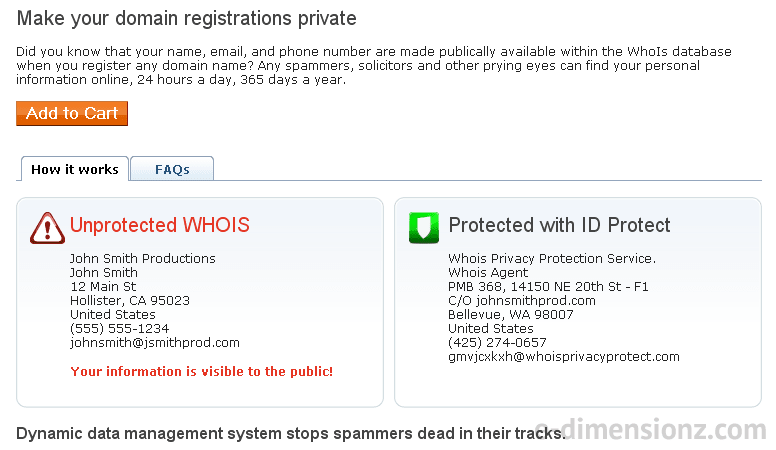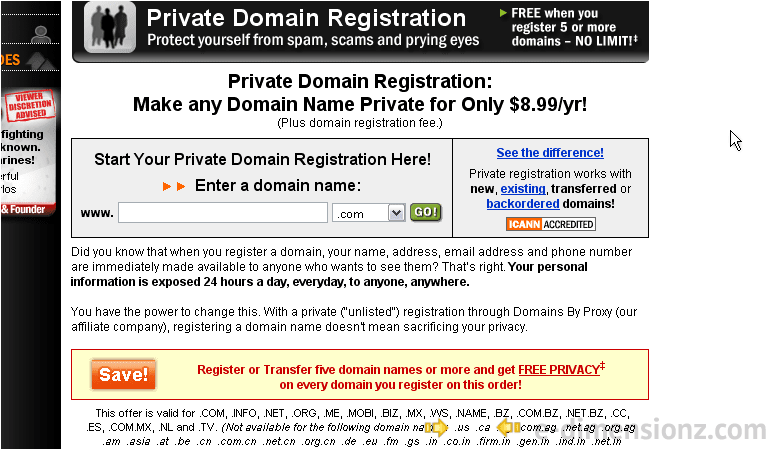If you've watched the previous tutorial, you may be worried about your personal domain registration information being available to pretty much anyone that wants it.
Most of the popular domain registrars will allow you to purchase an addon for your domain names called private domain registration, or something similar. Purchasing this can double the yearly cost of a domain name, though, so you have to decide for yourself whether the added protection is worth it.
In this image, you can take a quick look at eNom.com's ID Protect page. On the left you have an unprotected WHOIS result. Remember, WHOIS is the database that registrars have to maintain and make available to the public. And on the right you have a protected, or private WHOIS result.
As you can see in the registration info below, these services will make the domain registration for you. This is called proxy registration.
One important thing you should know is that when you use proxy registration on your domain name, the proxy company becomes the legal owner of the domain. They'll essentially be giving you license to use it, but you won't actually own the domain.
Proxy registration companies have also been known to occasionally give away personal information to anyone that calls and asks for it.
So, is private domain registration worth it to you? You'll still have to decide for yourself, but hopefully the information in this tutorial will help with that decision.
There is one more thing that you should know. We'll show you on GoDaddy.com's website.
Private registration is only available for certain domain extensions. Notably, .us and .ca domains cannot be registered through a proxy company.
This tutorial is now complete.

